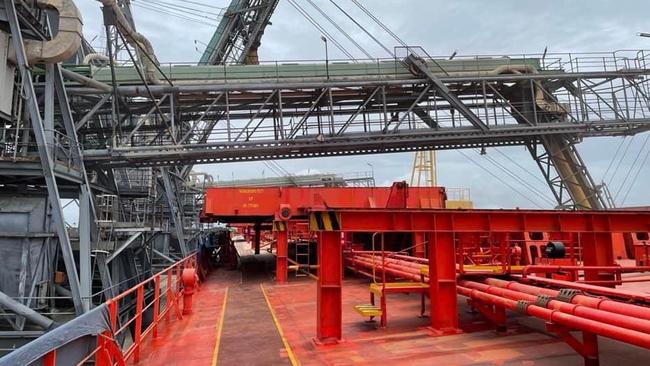ACCC appeals decision to throw out case over 50-year restrictions on Port of Newcastle
The competition watchdog is challenging a Federal Court judge’s decision to throw out its case alleging a monopoly for the operation of NSW’s ports.

Business
Don't miss out on the headlines from Business. Followed categories will be added to My News.
The competition watchdog is appealing a Federal Court decision to throw out its case against 50-year restrictions on the Port of Newcastle – which it claims preserve a monopoly for its rivals.
The Australian Competition & Consumer Commission argued, during an appeal hearing in the full Federal Court on Thursday, that the decision of a Federal Court judge to toss its case in June last year was “wrong”. The case involved 50-year agreements, known as the port commitment deeds, which were entered into as part of the $5bn deal to privatise Port Botany and Port Kembla by the NSW government in May 2013.
The deeds obliged the NSW government to compensate the successful bidder, NSW Ports, if container traffic at the Port of Newcastle was above a specified cap. The ACCC’s barrister, Michael Borsky QC, argued on Thursday that the “very essence” of the agreement with NSW Ports was to reduce competition and hold back the business at the port of Newcastle.
“The state promised not to carry on that business in a way that would compete with the other business and to pay compensation if it did carry on the business at Newcastle successfully with the business it was selling,” Mr Borsky said. “It was the very essence of the promise.”
Federal Court judge Jayne Jagot dismissed the ACCC’s claims in June. Justice Jagot reviewed evidence showing that bidders would have reduced their offers to the government to account for the risk of additional container terminals being added to the Port of Newcastle, which the government ran for another year after the deeds were signed.
The NSW government suggested adding the allegedly anti-competitive provisions requiring the state to compensate NSW Ports to maximise the bids it would receive, the court heard.
Justice Jagot found the state and NSW Ports, which were both named in the ACCC’s case, had the benefit of crown immunity, which meant competition law did not apply to them.
On Thursday, Mr Borsky said Justice Jagot was wrong to find the Competition and Consumer Act did not apply to the government because it was not “carrying on a business” when deciding to privatise the ports. Mr Borsky said it was “unnecessary and wrong” for Justice Jagot to distinguish between a government-owned company running the Newcastle port and the minister who made the policy decision to privatise the businesses.
Originally published as ACCC appeals decision to throw out case over 50-year restrictions on Port of Newcastle



